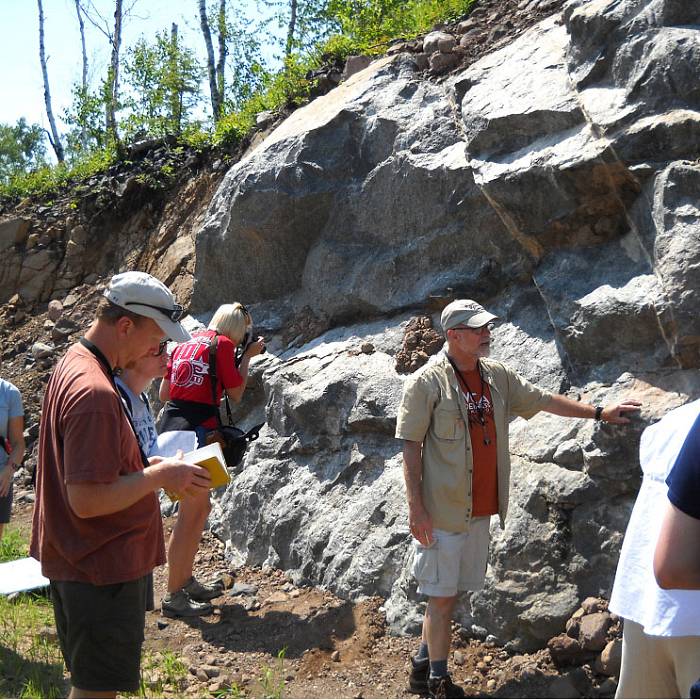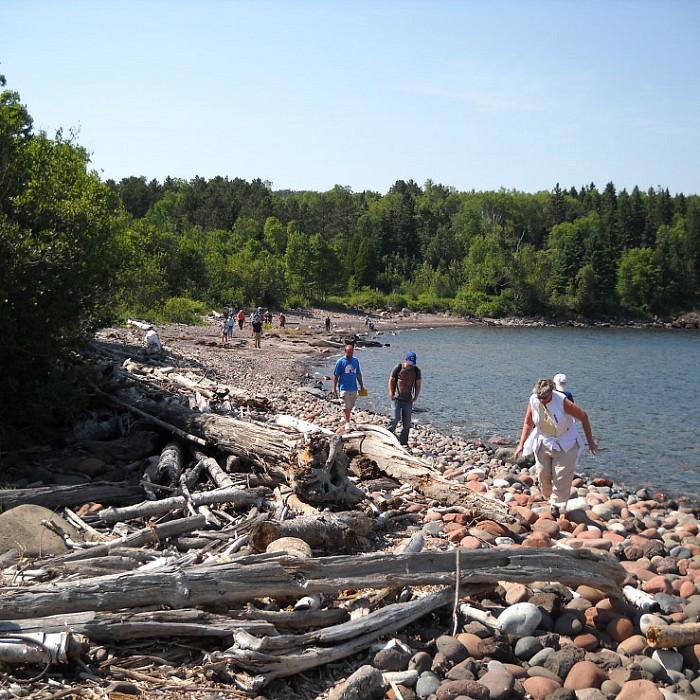
Northern Ecology
What's This Rock Three? Unraveling the Geological Story of Minnesota's Southern North Shore
Course Overview
How many times have you walked along a cobbled beach or a rocky ledge along the North Shore and wondered, "What’s this rock? Where did it come from? Why is it here?” And Lake Superior agates—“What do they look like? Where do I find them? How do they form?" This is your opportunity to have those questions answered by an expert on Lake Superior geology, and to learn some basic observational tools that will help you identify many rocks along the North Shore between Two Harbors and Silver Bay and to understand the story they tell. After an introductory lecture on Friday evening, Saturday and Sunday will involve field visits to geological sites between Two Harbors and Silver Bay. On our field expeditions, we will examine volcanic rocks that tell the story of lava eruptions that spilled across a vast barren landscape over one billion years ago. We will also investigate sediments and landforms formed by enormous continental glaciers that carved out the Lake Superior basin over the past two million years. On Sunday morning, we will hike downstream from Gooseberry Falls to Lake Superior. During this expedition, we examine lava flow and glacial features along the way. At the river’s mouth, we will inventory the various rock cobbles on the beach and maybe find an agate or two.
There are three courses in the "What's This Rock?" series. They do not need to be taken sequentially nor are they prerequisites to each other.
This course will not be based at North House Folk School. Instead, the instructor will meet the students at Gooseberry Falls State Park Visitor Center, which will serve as the homebase for the course. Students will need to make lodging arrangements in the Two Harbors/Duluth area. The materials fee includes group transportation on Saturday of the course. This course does not require a state park sticker.

